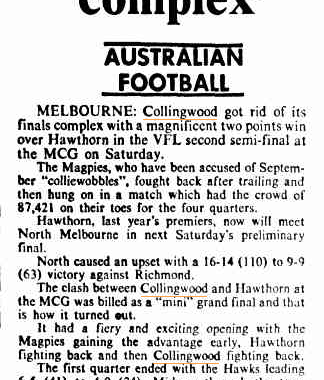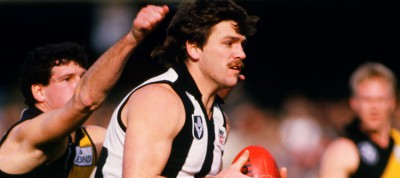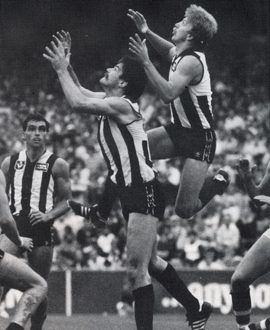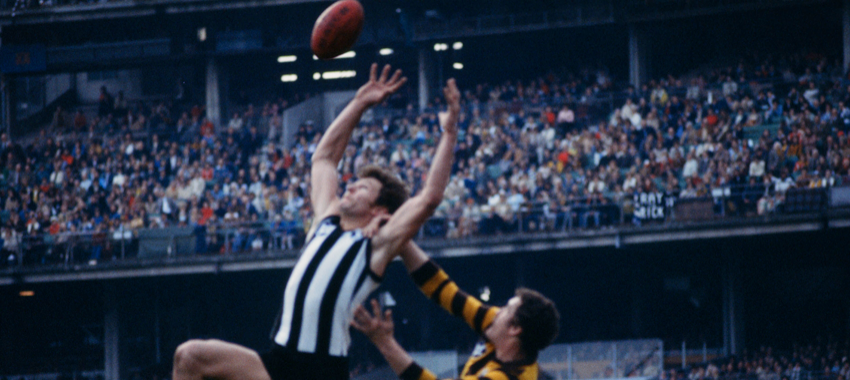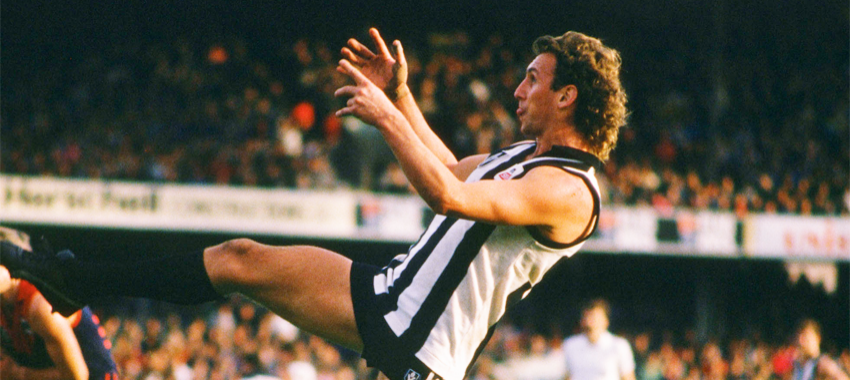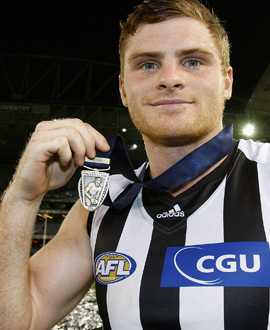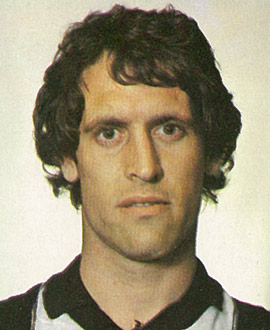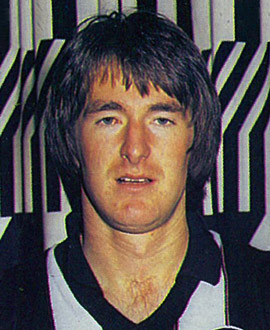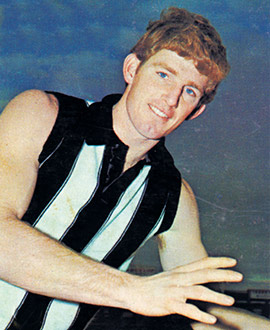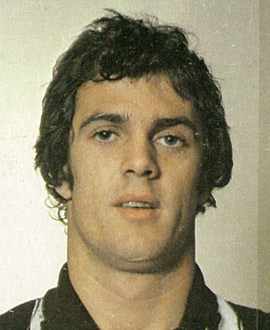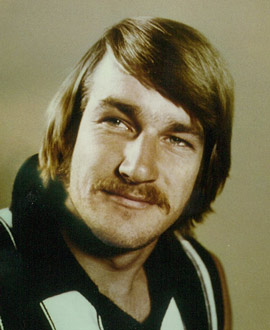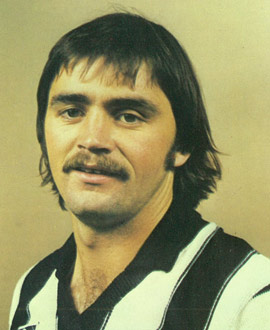By: Glenn McFarlane
THE contrast could hardly have been starker.
In the months leading up to the 1976 season, Collingwood players embarked on a trip to Thailand that was meant to be a team-bonding exercise. But for some, it turned into an experience normally reserved for end-of-season trips.
"I can tell you, it definitely wasn't like Arizona," former Magpie defender and now Sydney Swans football manager Andrew Ireland recalled, comparing what happened back then to the rigorous pre-season training camp Collingwood conducted in the United States in 2011.
In many ways, it was a precursor to a season of political unrest and personality clashes that dragged the club to the bottom of the ladder for the first time.
Twelve months later, most of those same Magpie players - many of them likely chastened by that historic wooden spoon - pounded the pavements of the suburbs surrounding Victoria Park in Melbourne's inner north like never before.
Under the watchful eye of new coach Tom Hafey, the first 'outsider' coach in the club's long history, Collingwood aimed to become the fittest team in the competition.
"It was really tough," Ireland said. "I'll never forget one night, it might have been the first run we did after Christmas.
"Tommy had us run from the ground around the [Yarra] Boulevard and up to the hill into Kew Junction. We came back and then we had to do four 400s, 300s, 200s, 100s, and 200s, 300s and 400s.
"We were all really tired, and we thought that was going to be the end of it. But then he made us do relay races."
With an almost fanatical approach to training, a change in playing philosophy, as dictated by the four-time Richmond premiership coach, and with a collective cause to make amends for the sins of 1976, the Magpies set about making the 1977 season one to remember.
Twelve months after finishing last, they ended the home and away season on top. And even if Hafey's team didn't win the premiership - they came agonisingly close by drawing the Grand Final - it remains the biggest turnaround in a club's fortunes in a League season.
In 1976, Collingwood created unwanted history on two fronts. The club that had previously proudly boasted it had never won a wooden spoon, did just that for the first time, and also became the team with the most wins (six) to finish last, a record it still holds.
Coach Murray Weideman and the club's outspoken president Ern Clarke had a fractured relationship. After much angst, it culminated in Clarke's resignation midway through the season.
The club's season was already in a nosedive. There were schisms among the players, with the Richardson brothers (Wayne and Max) demoted briefly to the reserves. Injuries impacted significantly and the team performed inconsistently.
Ireland recalled: "Given we had been in the finals for a long stretch [1969-75], we clearly underachieved [in 1976].
"I've got to say that I never went down the race thinking that Collingwood wouldn't win. But, in 1976, it was like, 'What the hell is going on?' It was just one of those years where things didn't really go our way, but we probably didn't help our own cause."
Collingwood's best and fairest in 1976, Robert Hyde, said it was unfair to blame any one individual for what happened that season, including coach Weideman, whom he acknowledged as a "legend" of the club.
"But for one reason or another, nothing seemed to go right for us," Hyde said.
Weideman had already decided he would return to Adelaide, and Hafey's time at Richmond had come to an acrimonious end.
So when Collingwood's new president John Hickey and his board went against a long-standing tradition of choosing a Collingwood person to coach the club, he knew Hafey was the man to move the goalposts.
Hafey had watched the Magpies in 1976, and instinctively knew that pride would drive the players to rebound.
"I felt that whoever was going to coach them, they were going to come up a bit better," Hafey said.
"I was working on the theory the players would be self-motivated. I just felt they would be so disappointed that this great club had for the first time finished on the bottom of the ladder.
"They probably got hounded for it."
The first thing Hafey changed was the fitness regimen. He drew on the services of his brother, Peter, a former professional runner, who played a role in the pre-season and during the season as Hafey's runner.
"We finished last in 1976 with a percentage of 86 and having lost 16 games, so we knew we had a team," Max Richardson recalled last year in the Herald Sun.
"Tommy joined the club, though we didn't see him much until February. His brother Peter took us in fitness work for 10 weeks before Christmas. We were seriously fit."
Hyde recalled the presence of Hafey - who was 45 at the time - on the punishing runs helped to inspire the players.
"Tom came in and there was a whole lot of structure about our fitness levels," Hyde said.
"They would have risen by about 70 or 80 per cent, I reckon. I remember going on 10km runs and he would be passing you halfway, and telling you to hurry up."
The Magpies recruited Stan Magro and Kevin Worthington from Western Australia, Ricky Barham, Gerald Betts and Chris Perry. And Sam Kekovich, a premiership player with North Melbourne, had a short-lived four-game stint with the club.
Barham later said it was Hafey's ability to bring the group together that was his greatest strength.
For a time, it appeared Collingwood's back-up ruckman to Len Thompson, Peter Moore, who had played 42 games for 24 goals to the start of 1977, would be leased to South Fremantle in return for Magro. Fortunately, for Collingwood, it never happened.
Moore played forward in 1977, kicking 76 goals in his 22 games before winning the Brownlow Medal as a ruckman two years later.
Hafey's Magpies won eight of their first nine games. The only loss in that time was against North Melbourne, in round two by nine points.
The biggest clash of those early wins came in round four, against Richmond in a game that 18 years later would be used as the catalyst to establish what has become a modern football tradition.
On Anzac Day, 1977, more than 92,000 fans - at that stage the second biggest home and away crowd of all-time, and still the fourth highest - crammed into the MCG as Hafey came up against his old club.
One of Hafey's former disciples, Kevin Sheedy, the man who later used this game as part of his brainwave for the Essendon-Collingwood Anzac Day concept in 1995, felt lost without his former coach and friend.
The Magpies narrowly led at half-time, and the first passage of play after the main break still resonates with Sheedy and Hafey, 34 years on.
"I had a feeling that a couple of Richmond players might have been a bit upset that I was up against them," Hafey recalled.
"Richmond got the first kick after half-time and Kevin Sheedy kicked the ball 70m the wrong way. It was the best kick he had done in his life."
Looking back on the moment he still lists as one of the hardest of his playing career, Sheedy said: "I just had a bit of a mind lapse ... I hated playing against Tom Hafey [as coach].
"I kicked the ball straight to [Collingwood forward] Phil Carman. I remember saying to Francis Bourke, 'Stop playing off your man'. 'Bourkey' didn't like that.
"What Tommy managed with that Collingwood team was unbelievable. I rate it right up there - probably better than John Worsfold's effort [with West Coast this year]," he said.
For a time, it was thought the win over Richmond was Collingwood's 1000th in League company.
Only after the fact was it found to have been the 999th; the Pies had to wait one more week (when they posted a 15-point win over Geelong at Victoria Park) to become the first to 1000.
There was little doubt the Magpies were on the march after that famous Anzac Day win.
That victory over the Tigers, by 26 points, was one of seven straight, the streak broken by a loss to South Melbourne in round 10, also by 26 points.
Five wins in a row followed in the middle of the season before a five-point loss to Geelong in round 16.
The club's only other loss of the home and away season was by six points to another contender, Hawthorn, in round 20.
Hafey recalled: "I was right. The players were super motivated because of the poor year in 1976. They were fantastic to work with."
Hyde said the players were "regenerated" by the change.
"You just knew in games that the preparation you had was never going to let you down," he said.
He said Hafey's philosophy - as simple as it sounds three-and-a-half decades on - resonated with the group.
"You beat your man, and you took the long option rather than the short one," Hyde said.
Ireland agreed: "People say [Hafey's game-plan] was characterised as simply kicking the ball long, but he was quite tactical in terms of getting numbers where the ball was, and getting players to leave their area to get more numbers somewhere else, as long as other players moved around as a result."
Collingwood finished a game clear of Hawthorn, with North Melbourne, coached by Ron Barassi, a further two games back.
Keeping to the fairytale script of redemption, the Magpies narrowly overcame the Hawks in the second semi-final, by two points.
Thompson, who later won the Copeland Trophy for a fifth time, was best afield, and Carman booted four goals.
But in keeping to the enigmatic nature of Carman's career, a moment of madness cost him - and Collingwood - dearly. Only later was it understood just how costly his indiscretion was.
Carman struck Hawk Michael Tuck and the subsequent two-week suspension meant the controversial but brilliant forward known as 'Fabulous' missed the Grand Final, as well as the replay.
Collingwood led the Grand Final - the first to be telecast live in Victoria and the first featuring pre-game entertainment (in this case, Barry Crocker singing The Impossible Dream) - by 27 points at three-quarter time against an inaccurate North Melbourne.
A remarkable final term saw the Kangaroos fight back and regain the lead before Ross 'Twiggy' Dunne took a memorable pack mark and kicked a flat torpedo through to level the scores. It was only the second Grand Final draw in League history.
A week later, a seemingly fresher North Melbourne won the replay by the same margin Collingwood had led by at the last change the week before.
There was criticism later from some members of the team, including Ray Shaw, who voiced those thoughts again after last year's Grand Final, that Hafey trained the team too hard in the lead-up to the replay.
Ireland accepts the team trained very hard before the replay, but concedes it was the hard edge they had developed in the first place that had got them where they were.
But the absence of Carman was a major factor in both games.
"Fabulous Phil cost us in the end," Hyde said. "But that was his nature. He was unpredictable and you were always on edge about him."
Ireland concurred: "I have little doubt we would have won the Grand Final if Carman had played.
"I remember seeing some television footage [that week] and I reckon they showed about 20 incidents from the game and 19 of those were never reported.
"You look at them now and all of them should have been reported. But I still don't know why he decided to give 'Tucky' one."
Two members of Collingwood's 1977 team (Thompson and Wayne Gordon) are gone now, but the others still mix and mingle at club functions. Many are still close mates.
As much as they are pleased with the fact they created history, they acknowledge the main prize didn't come their way, and it remains the itch they cannot scratch, as much as they have tried.
"Nobody has ever done it [gone from last to first] so that would have been real history in the making," Hyde said.
"North Melbourne deserved it in the end, but I am sure it would have stuck in Tommy's craw because he is a very proud man.
"Who knows, if the [first] Grand Final had've gone another 30 seconds, we might have won it. Shane Bond was streaming down the wing with the ball and might have banged home a point …
"Still, you look at last year's Grand Final draw [between Collingwood and St Kilda]. If the ball bounces the other way, Stephen Milne might have won it for St Kilda. So maybe that was the payback."
Hafey's Collingwood teams went on to play in the 1979, 1980 and 1981 Grand Finals. But Ireland maintains the 1977 side was the best.
"Those other teams over the next few years weren't really considered the best in the competition in those years," he said.
"But we were pretty close to it in 1977. It was probably the one that got away for us."
Hafey has maintained the same - that if Carman had not been so impetuous, the Magpies of 1977 might have become the centre of one of the greatest football stories.
But, having just celebrated his 80th birthday, he doesn't want to go over past sins. Like any good coach, past or present, his mind is always moving forwards. Hafey said losing the '77 flag was "a big disappointment".
Then, just to emphasise it, he repeats the words in such a tone to suggest that time has not totally dulled the pain of the experience for him, or his players. This story first appeared in the Footy Record


